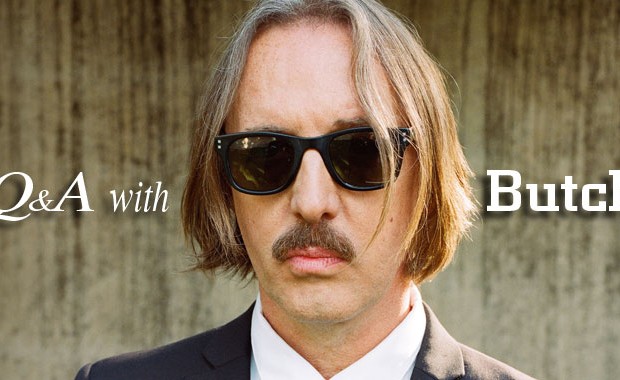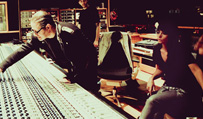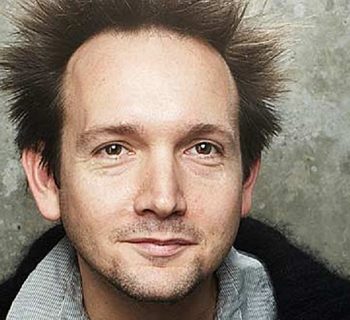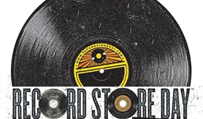MC: You’ve said of Garbage’s first record––the self-titled Garbage––that it contained a number of accidents. Other producers have observed that accidents have often been valuable. Do you agree?
Vig: Garbage was quite experimental. When we’d started writing and recording the songs, I’d done something like a thousand punk records. I was getting bored recording guitar, bass and drums. Some of the bands that were exciting to me at the time, like Public Enemy, had the most scary, crazy, exciting production. That was more rock & roll than a lot of the rock & roll music out there. They were using samplers, so I became obsessed with samplers and what you can do in a studio. I bought an Akai S1000 and a Kurzweil K2500 and those became writing tools for us. Since we didn’t know how to use them at the time, there were several bizarre accidents. At one point in “Queer” we were trying to take a mono drum sample and put it back to tape. Somehow I actually patched it into the converter. But it sounded great. Those are the drums in the bridge section and outro. On “Stupid Girl” there’s this scratchy sound. It was some computer glitch––I don’t remember what happened, exactly. Maybe the Akai froze up. We rolled tape and printed about five minutes of it. We found a two-bar sample that sounded cool. In all B sections and the outro, that became the hook. But it’s completely non-musical. Rock & roll should be about mistakes. You don’t want everything pto be] perfect.
MC: With Green Day’s 21st Century Breakdown, how did you begin to guide the band? It sounds like there were a lot of ideas and potential directions.
Vig: That was an incredible experience. And a long and daunting one. I spent about 13 months total working on the record. Easily the first six or seven months of that were pre-production, rehearsals and just talking about where the songs should go. After the success of American Idiot, the band could have done many different things. They could have gone back and made a punk rock record like they did with ¡Uno! ¡Dos! or ¡Tré! But they set the bar high with the ambitious arrangements on American Idiot and I was glad that they decided to push the bar even higher. Once we started working on the arrangement and they brought in song ideas, we spent a lot of time trying different approaches and seeing which songs spoke to each other. Billy was trying, thematically, to get his head around what he wanted to say. We tried different things every day, but we recorded the record in about 14 weeks. It went pretty fast because at that point we had a lot of the ideas and the arrangements were fairly focused. It was just a matter of executing.
MC: Did you feel pressure to match the success of American Idiot?
Vig: I did and so did the band. Especially Billy. But I’d felt that before with Nirvana and the [Smashing] Pumpkins. Even when I started with Foo Fighters, people were saying ‘Butch Vig and Dave Grohl are working together. It’s the first time since Nevermind.’ There’s a point when that pressure is good because you want to bring your A-game. I’m able to acknowledge that, but also shut it out and focus in the studio. I was able to do that with Green Day. Ultimately we sequestered ourselves. We tried to shut out outside influences and just focus on work. Green Day was very good at that. They’re obsessive workaholics.
MC: How do you choose the projects you work on these days?
Vig: There are a couple of criteria. One, I have to feel that I have a vision I can bring to the band’s ideas. I have to go through the process of meeting them, understanding what they’re about and feeling that I can help; bring them up a notch from or help them get where they want to go. Two, it’s a matter of the songs: do I fall in love with them? It’s not necessarily “do I hear a hit single?” It doesn’t matter if they’re signed to a major label or an indie. It’s a matter of whether the chemistry is right and if it feels like the right thing for me to do.
MC: Given your taste in music now, are you happy working outside of your comfort zone?
Vig: The great thing about being in Garbage is that over the years we’ve dabbled in almost every genre: orchestral, techno, hip-hop, folk, punk. I listen to a lot of Internet radio stations and they play a ton of crazy stuff. I’m genuinely interested in listening to music that pushes the envelope, whether it’s lo-fi or crazy electronica. I’m not elitist when I listen to music. I listen to everything.
MC: What advice do you offer to producers who are just starting out?
Vig: Try to understand the artist you’re working with. Don’t lose what’s unique about them. Don’t feel that you have to genericize or over-commercialize their music to have success. Bands that have a true identity are the ones that rise to the top. A lot of people are obsessed with trying to get a hit that could be on the radio. But these days with the Internet, a lot of the songs that I hear that are “hits” don’t sound anything like commercial music that we’d listen to 10 or 20 years ago. I say to artists, be true to yourself. Don’t try to change your music to fit into a style or form. You have to write and perform material that you feel good and honest about. If you write good songs, you’re going to find success.
MC: Are you open to working with unknown bands? If so, how can they contact you?
Vig: In the past few years, I’ve worked with relatively new or obscure acts. I’ve worked with Never Shout Never. Christofer [Drew Ingle] is an amazing pop writer with great pop sensibilities. I’ve also worked with Against Me! I love that band. To me, they should be as big as the Clash. They’re so intense and powerful. Unsigned bands can contact me through Garbage’s management––Paul Kremen at Big Picture. Garbage has been on tour for the last six months and at every show, fans give me CDs or, more often, memory sticks with their music. I try to listen to everything. I may only get to 30 seconds or so of each song, but I put each one on. We’ve heard some cool new stuff.
MC: What are your current and future projects?
Vig: I just got off the road with Garbage. We’d been on tour since April. I’ve got some time off now but will record some new Garbage songs in January. We’ll be doing some shows in Australia probably at the end of February, early March. I’m also helping Dave Grohl finish up the soundtrack for his documentary Sound City. It’s an amazing film. Dave bought the Neve console from Sound City studio, which is where we recorded Nevermind 20 years ago. He interviews a bunch of people who worked there and has them tell stories.
MC: Do you have a dream project on which you’d like to work? Are you in talks with anybody?
Vig: I absolutely adore Neil Young. Someday it would be cool to record a song with him. I think he’s an amazing musician and an icon. He’s as good as you can get. He’s followed his own path, has an incredible body of work and is still doing it.
Contact Paul Kremen / Big Picture Music, http://bigpicturemusicco.com













